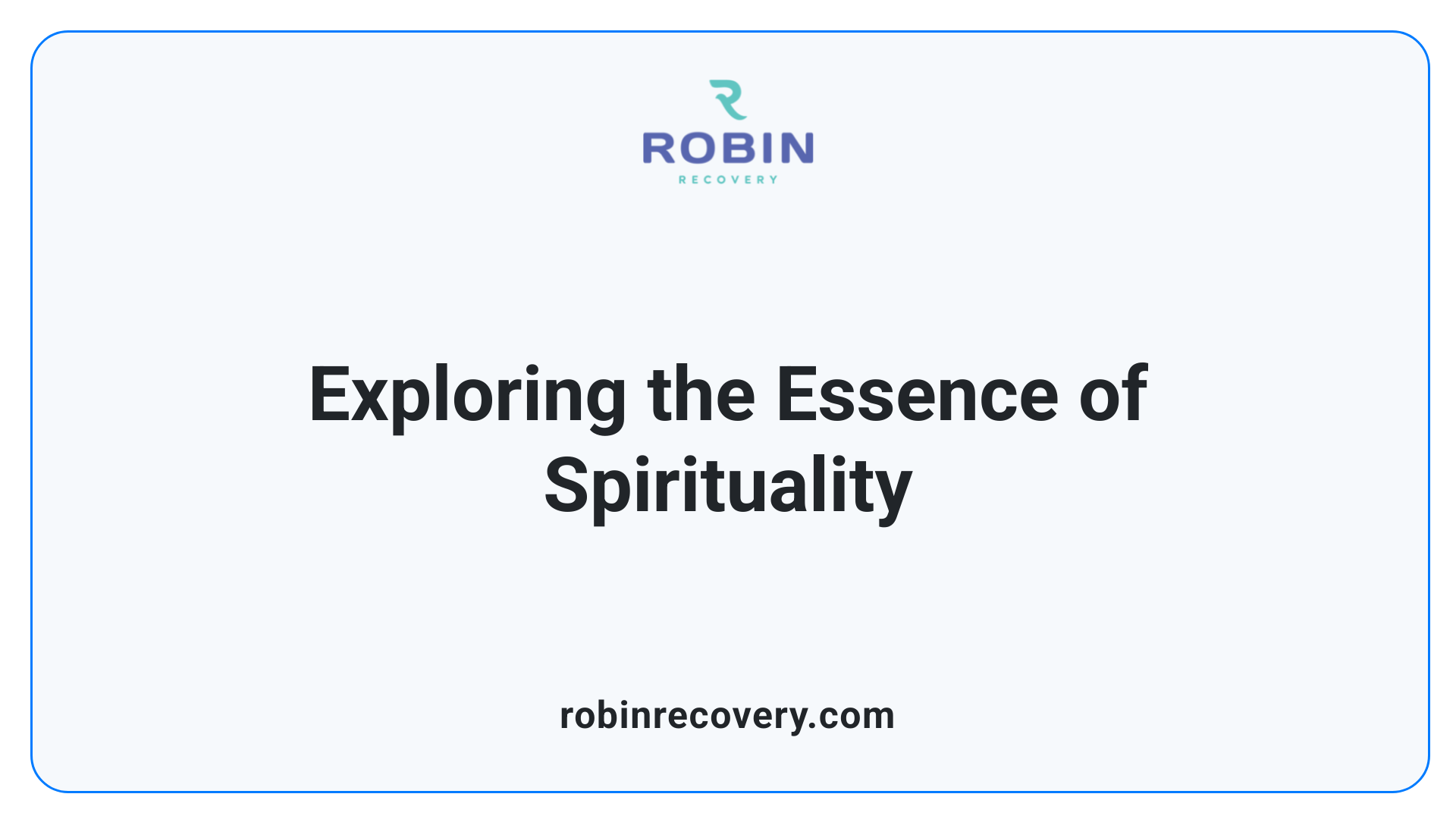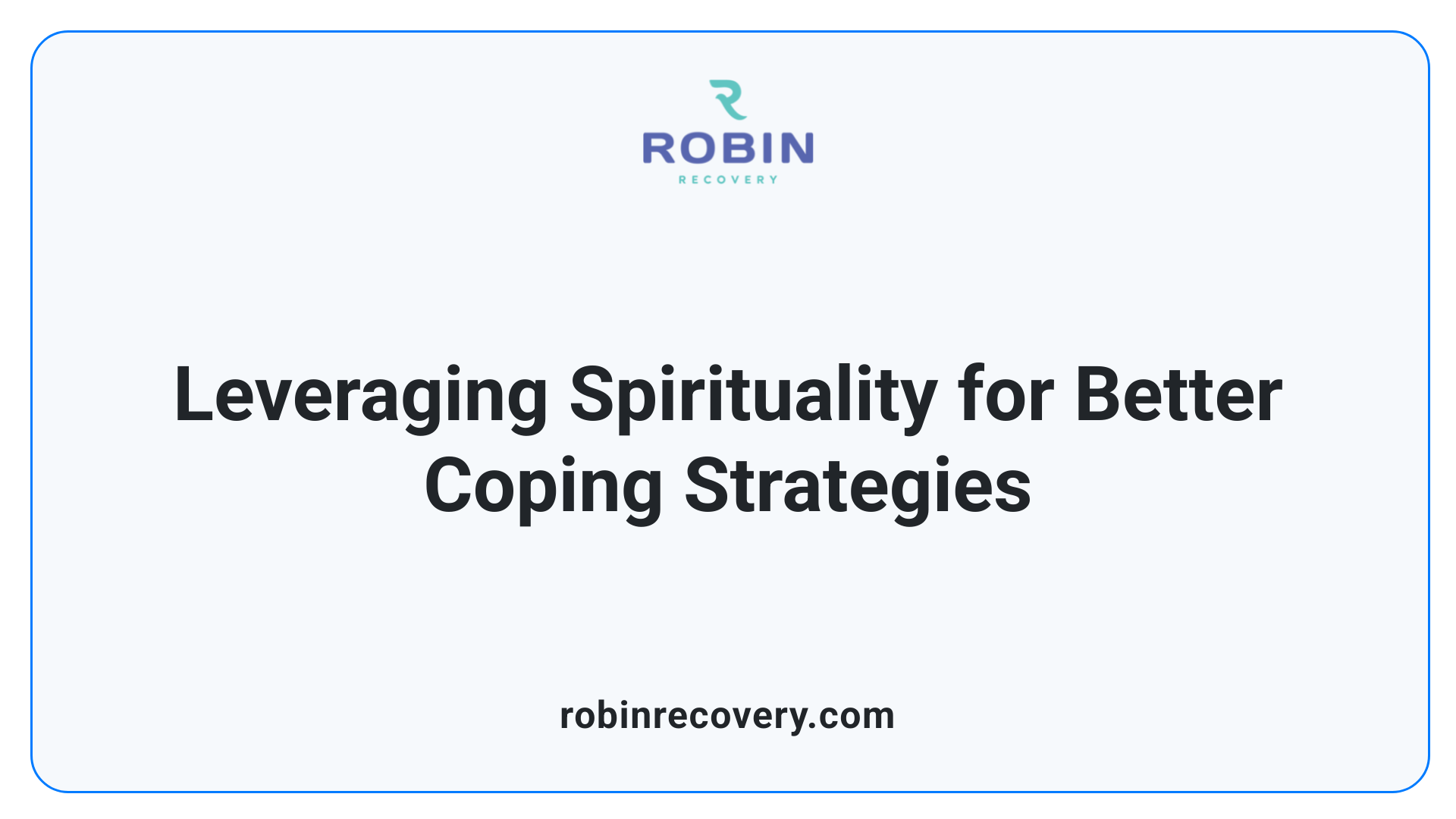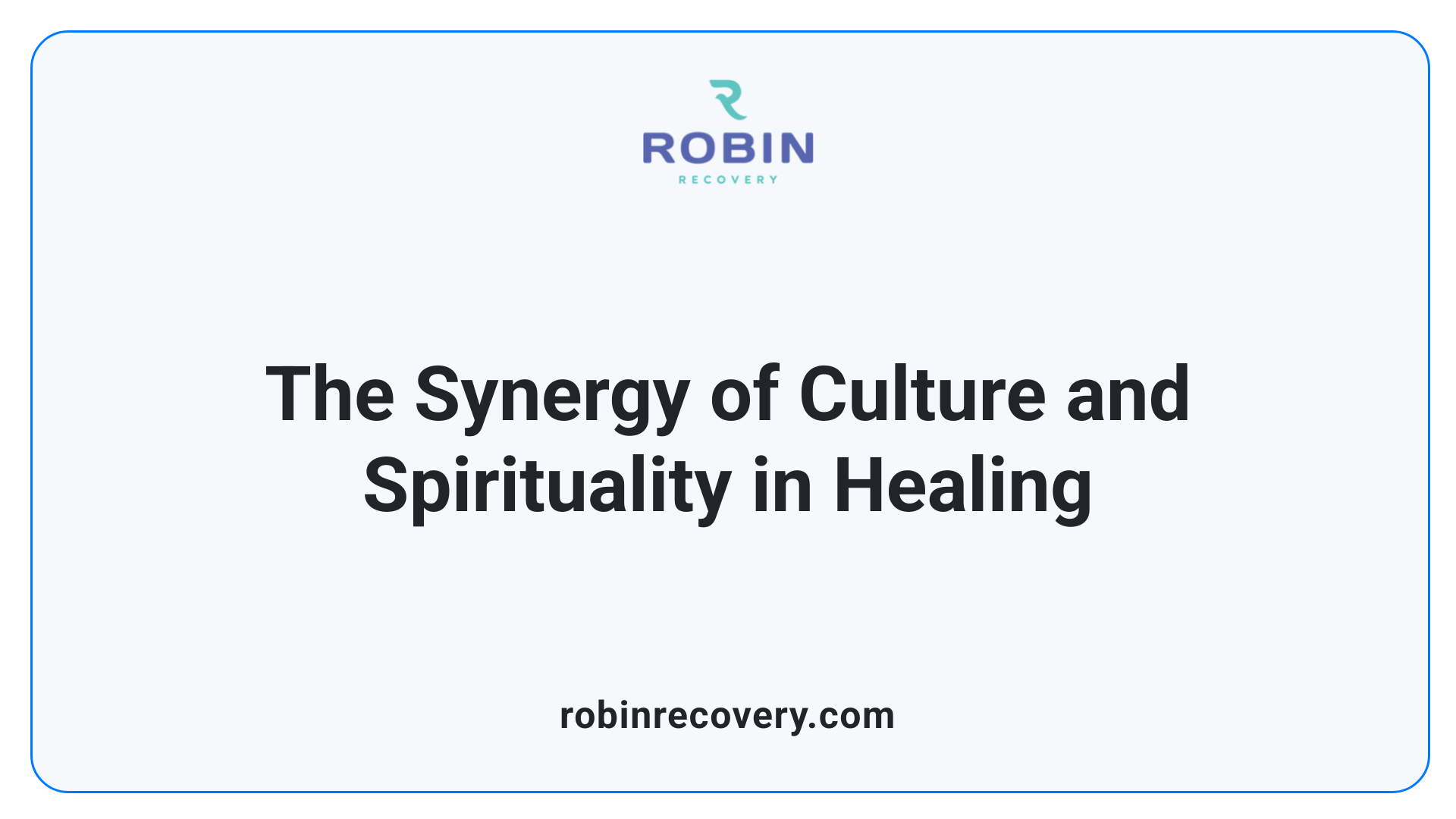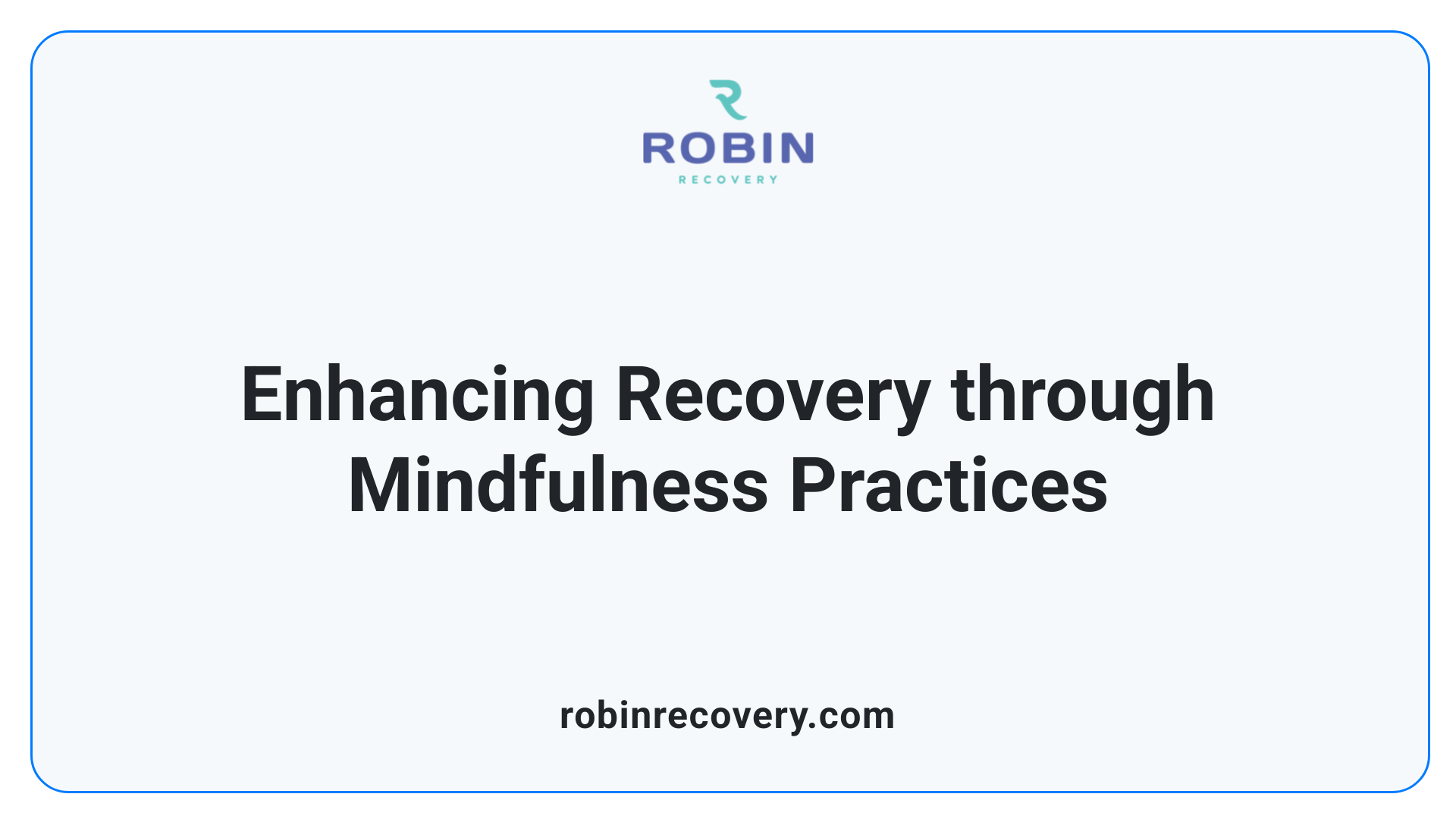The benefits of exploring cultural and spiritual practices in recovery

Introduction
In recent years, there has been a growing recognition of the importance of incorporating cultural and spiritual practices into addiction recovery strategies. These practices offer a holistic approach to healing by addressing the mind, body, and spirit, fostering a profound sense of connectedness and purpose in individuals on their recovery journeys. As research and personal testimonies continue to highlight their efficacy, understanding and integrating these dimensions can significantly enhance recovery outcomes. This article explores the multifaceted benefits of cultural and spiritual practices in supporting those overcoming addiction.
Understanding Spirituality

What is spirituality?
Spirituality is a broad concept involving a sense of connection to something greater than ourselves and a quest for meaning in life. It encompasses experiences that can be religious or personal, often emphasizing values such as love, compassion, and altruism. Spirituality promotes emotional well-being and personal growth through practices like meditation and prayer, enabling individuals to explore their identity and purpose.
Spirituality vs. religion
While spirituality often overlaps with religion, it highlights subjective experiences and connections rather than strictly adhering to organized doctrine. Religion may provide structure through shared beliefs, whereas spirituality allows for a more individual and personal exploration of one’s beliefs and values. This distinction is important as spirituality can thrive outside the confines of organized religion, inviting diverse expressions that cater to personal needs and growth.
Importance of spirituality in personal growth
Engaging in spiritual practices fosters resilience and emotional healing, offering tools for coping with life’s challenges. Spirituality can enhance self-awareness and self-esteem, helping individuals to develop healthier behavior patterns. Moreover, forming connections with a higher power or community supports mental health by providing a sense of belonging and purpose. Such connections can serve as crucial resources for individuals in the recovery process, allowing them to navigate difficulties more effectively.
Aspect Spirituality Religion Focus Personal connection and growth Structured belief systems Expression Individual practices Organized rituals Community Role Belonging through shared values Belonging through doctrine Emotional Well-being Enhances resilience and purpose Provides structure and support
The Cultural Influence in Recovery
Why is culture important in recovery?
Culture plays a vital role in the recovery journey from addiction, as it shapes an individual's perceptions, behaviors, and attitudes towards substance use and treatment. For many, cultural background influences their readiness to seek help and engage with recovery services. This consideration is particularly significant in the context of ethnic minority groups, where culturally competent treatment approaches are essential.
Understanding cultural competence in treatment
Culturally competent treatment acknowledges the diversity of recovery experiences. Tailoring approaches to meet the specific needs of individuals promotes better outcomes. For instance, in the Latinx community, the emphasis on family support might dictate treatment strategies, ensuring that treatment involves family engagement and respects cultural traditions. Incorporating familiar practices helps to enhance trust and participation in treatment plans.
Addressing historical and systemic barriers
Historical and systemic barriers also impact recovery. Stigma surrounding addiction can be particularly pronounced in certain cultures, deterring individuals from seeking assistance. By recognizing these challenges and addressing the mistrust that may arise from past experiences with health systems, treatment programs can create a more welcoming environment. This fosters openness, reduces stigma, and ultimately contributes to a more effective recovery process. Integrating cultural awareness into treatment plans is a crucial step toward supportive care and successful recovery outcomes.
Topic Details Significance Impact of culture Shapes perceptions and attitudes towards addiction and treatment Influences treatment engagement and success Culturally competent treatment Tailored strategies respect cultural values Enhances effectiveness and trust in services Historical/systemic barriers Stigma and mistrust affect access to care Important for creating a supportive recovery environment
Spirituality's Role in Recovery

Why is spirituality important in recovery?
Spirituality is a vital component of recovery as it helps individuals find meaning and purpose in their lives. For those struggling with addiction, engaging in spiritual practices can enhance both physical and mental health. Activities like meditation, gratitude, and yoga foster a deeper sense of connection, enabling individuals to cope with negative emotions effectively.
By incorporating spirituality into recovery, individuals often experience improved self-worth, increased joy, and a clearer life purpose. This supportive framework encourages healthier coping mechanisms, which are essential for navigating the challenges of sobriety.
Connection to a higher power
Connecting with a higher power is integral for many individuals in recovery, providing spiritual support and guidance. This connection can help in reshaping identities, fostering self-esteem, and encouraging personal transformation.
Many individuals report that the personal relationship they cultivate with a higher power significantly reduces their likelihood of relapsing, offering a protective element during the early stages of recovery.
Benefits of spiritual practices in recovery
Spiritual practices like prayer and meditation offer a range of benefits that enhance emotional resilience and well-being. These practices can lead to positive physical health outcomes, such as lower stress levels and improved immune function.
Here are some key benefits summarized in a table:
Spiritual PracticeBenefitsImpact on Recovery Prayer Emotional support Reduces anxiety and enhances coping mechanisms Meditation Increases self-awareness Improves decision-making skills and emotional regulation Yoga Promotes physical health Encourages mindfulness and reduces tension
Frameworks like 12-step programs
The 12-step programs stand out as structured approaches that incorporate spirituality into recovery. These programs focus on spiritual awakening and the importance of community support, which can significantly enhance overall life satisfaction for individuals recovering from substance use disorders.
Research indicates that treatment programs with a spirituality-based framework yield lower relapse rates, illustrating the effectiveness of integrating spiritual practices into recovery journeys. This holistic approach, focusing on mind, body, and spirit, supports lasting change and empowers individuals to reclaim their lives from addiction.
Coping Mechanisms in Spiritual Practices

How can spirituality help someone in the recovery process?
Spirituality can significantly aid the recovery journey by arming individuals with effective coping mechanisms and fostering a sense of purpose that transcends their personal challenges. Practices such as meditation, prayer, and reflection contribute to stress reduction, emotional wellness, and an overall improvement in mental health.
Engagement in spiritual activities induces a calming effect, reducing anxiety and depression that often accompany addiction. These practices encourage present-moment awareness, helping individuals focus on positivity and mindfulness, which can mitigate risky thoughts and behaviors related to substance use.
Moreover, participation in support groups like Alcoholics Anonymous leverages spiritual principles to unite individuals facing similar struggles. These communities provide understanding, encouragement, and shared experiences that can bolster one's resolve in recovery. Members often find strength in collective values and spiritual teachings, showcasing the integral role of spirituality in fostering resilience.
Enhanced emotional well-being
Incorporating spirituality into one’s recovery can lead to improved emotional well-being. Individuals who actively engage in spiritual practices generally report increased feelings of connectedness and belonging, essential elements that counteract loneliness often felt during recovery. This enhanced emotional quality fosters greater self-esteem and reduced negative feelings, crucial for maintaining sobriety.
Support groups
Support systems significantly impact recovery, and many addiction treatment programs incorporate spiritual elements. Approximately 73% of these programs include spirituality-based components, demonstrating a widespread acknowledgment of spirituality’s benefits. Emotionally supportive environments help individuals address feelings of isolation and promote healing through shared rituals and values.
Aspect Description Benefits Spirituality in Recovery Engaging in spiritual practices like meditation and prayer Reduces stress and enhances well-being Emotional Support Participation in support groups Fosters sense of belonging Community Connection Connection through shared beliefs and experiences Promotes resilience and coping
Cultural and Spiritual Well-being in Recovery

What are the benefits of cultural and spiritual well-being in recovery?
The benefits of cultural and spiritual well-being in recovery are substantial, particularly for older individuals facing health declines. Engaging in spiritual and religious practices has been shown to significantly enhance quality of life. This involvement provides crucial support, especially during the aging process and end-of-life stages.
Aged care services are encouraged to assess and address residents' spiritual needs proactively. Creating a trusting and respectful environment is essential for fostering open discussions about spirituality. When spirituality is incorporated into care plans, it aids individuals in coping with psychological distress associated with chronic illnesses.
Furthermore, acknowledging spiritual needs promotes dignity and self-respect for individuals at various stages of life, including those with dementia. This holistic approach, which integrates cultural and spiritual well-being, leads to improved health outcomes and a more meaningful experience during recovery.
Benefits of Cultural and Spiritual Well-being Impact on Quality of Life Influence on Aging Process Enhances emotional resilience Greater life satisfaction Improved coping strategies Promotes a sense of belonging and identity Reduced feelings of isolation Support in end-of-life care Provides coping mechanisms during health challenges Dignity in care settings Fosters open discussions about beliefs Encourages mindfulness and self-awareness Lower stress levels Strengthens community support
Integrating cultural and spiritual well-being within recovery frameworks is essential for fostering comprehensive support systems that nurture mental and emotional health.
Interplay of Cultural and Spiritual Dimensions
How can cultural and spiritual dimensions contribute to mental health and recovery processes?
Cultural and spiritual dimensions play a vital role in mental health and recovery processes by providing individuals with a sense of purpose, connection, and identity. These dimensions facilitate social support and emotional healing, crucial for anyone navigating the complexities of recovery from addiction or mental health challenges.
One prominent model illustrating this is the MISTIC framework, which stands for Meaning, Introspection, Spirituality, Time, Identity, and Community. This framework emphasizes how spirituality fosters meaning-making and offers coping strategies, allowing individuals to face mental health challenges more effectively. By integrating spiritual practices such as prayer and meditation into their lives, individuals can cultivate inner peace, effectively reducing negative emotions and enhancing both self-esteem and resilience.
Cultural factors further enrich the interaction between spirituality and mental health. They influence how individuals perceive their connection to the world and themselves, shaping their recovery journey. Recognizing and addressing these spiritual needs within mental health care is essential, as they significantly impact patients' coping mechanisms and social support networks.
Ultimately, incorporating spiritual assessments into mental health treatment can lead to personalized and more effective care, particularly for individuals from diverse cultural backgrounds. This tailored approach not only fosters belonging but also promotes holistic healing and lasting recovery outcomes.
Practical Steps for Integrating Spirituality
What are some practical steps for incorporating spirituality into recovery journeys?
Incorporating spirituality into recovery journeys can be achieved through several practical steps.
- Daily Spiritual Practices
Individuals can engage in daily practices such as meditation, prayer, and journaling. These activities enhance self-reflection and promote inner peace, providing a supportive framework for emotional stability. - Participation in Self-help Groups
Joining self-help groups like Alcoholics Anonymous (AA) allows for a collective experience that emphasizes the recognition of a higher power. These groups foster personal growth, accountability, and community connection which are vital for sustained recovery. - Connecting with Nature
Exploring various spiritual traditions and spending time in nature can deepen one's sense of purpose and enhance feelings of interconnectedness. Natural settings often provide a tranquil environment conducive to spiritual reflection and healing. - Practice of Gratitude and Mindfulness
Consistent practice of gratitude can significantly improve overall emotional well-being. Mindfulness activities, associated with spiritual beliefs, help individuals maintain focus on positive aspects of life, which aids in managing stress and preventing relapse.
The synergy of these steps contributes to holistic recovery by fostering a supportive environment conducive to personal transformation.
The Economic and Social Impact of Faith-Based Recovery Support
Economic Savings from Faith-Based Programs
Faith-based recovery support systems not only offer emotional and spiritual healing but also deliver significant economic benefits. It's estimated that these programs, including various spiritual frameworks, contribute approximately $316.6 billion in savings to the U.S. economy annually. This impact underscores the financial efficiency of integrating spirituality in recovery methods, as these programs help reduce healthcare costs and promote long-term sobriety.
Social Value of Spiritual Support Groups
Beyond financial considerations, spiritual support groups foster a profound sense of community and belonging among participants. These settings encourage shared experiences, emotional support, and collective healing, all while addressing mental health needs. Engaging in these communities can significantly enhance the recovery journey by reducing feelings of isolation and providing continuous encouragement.
12-Step Program Impact
The 12-step program exemplifies the integration of spirituality within addiction recovery. Many treatment facilities, roughly 73% in the U.S., incorporate spirituality into their frameworks. Participants in these programs often report lower relapse rates and enhanced life satisfaction, demonstrating the effectiveness of combining spiritual practices with structured recovery support. The 12-step approach has become a cornerstone in promoting not only sobriety but also emotional and social well-being.
Mindfulness and Meditation in Recovery

Impact on Brain Health
Mindfulness and meditation have gained recognition for their positive effects on brain health, particularly in the context of addiction recovery. Research from Harvard has demonstrated that mindfulness meditation leads to increased gray matter density in the hippocampus, a brain region crucial for self-awareness and compassion. This suggests that regular meditation practices can enhance cognitive functioning, contributing to better emotional regulation and decision-making skills for those in recovery.
Self-awareness and Emotional Regulation
Practicing mindfulness enhances self-awareness, enabling individuals to better understand their emotions. This process is vital in addiction recovery, as it aids individuals in identifying triggers and adopting healthier coping strategies. Mindfulness allows for present-moment awareness, helping to correct distorted thinking patterns that often accompany addiction. As a result, it fosters emotional resilience and empowers individuals to navigate challenges effectively.
Role in Addiction Treatment
Incorporating mindfulness and meditation into addiction treatment programs has shown significant benefits. Evidence indicates that individuals engaged in such practices experience lower relapse rates and improved recovery outcomes. By promoting stress management and encouraging self-awareness, these modalities not only support overall well-being but also enhance the effectiveness of treatment plans. Mindfulness practice contributes to holistic healing, addressing the interconnectedness of mind, body, and spirit during recovery.
Cultural Practices and Identity Restoration
Role of Heritage in Recovery
Cultural identity plays a significant role in the recovery process for individuals facing addiction. Heritage influences beliefs, attitudes, and behaviors regarding substance use, which can shape an individual's approach to recovery. Understanding and integrating cultural practices into treatment can enhance the effectiveness of recovery programs. Culturally responsive treatment that acknowledges an individual's background not only respects their identity but also resonates more deeply, fostering engagement.
Restoring Community Connections
Connection to community and cultural roots provides vital support in recovery. Many individuals benefit from engaging in community rituals and practices that reinforce their identity. This sense of belonging can counter feelings of isolation that often accompany addiction and recovery. By fostering relationships within cultural or spiritual communities, individuals can find solidarity, shared experiences, and emotional support, which are essential during challenging times.
Methods Like Smudging
Specific cultural methods, such as smudging, have been proven effective in addiction recovery. Smudging involves the burning of sacred herbs to cleanse spaces and individuals, promoting balance and emotional well-being. This practice fosters a strong connection to one's personal and cultural identity. Through actions like these, individuals can release negative energies associated with addiction, paving the way for emotional healing and resilience. Overall, the incorporation of cultural practices creates a holistic environment that nurtures recovery, fostering a deeper connection to self and community.
Holistic Healing Through Spiritual Practices
Mind-body-spirit connection
Spiritual practices such as meditation, yoga, and prayer emphasize the interconnectedness of mind, body, and spirit. Engaging in these practices during recovery can lead to improved mental health outcomes. Studies show that mindfulness meditation, for example, enhances self-awareness and emotional regulation, supporting individuals as they navigate the challenges of recovery. By fostering present-moment awareness, these practices help correct distorted thinking patterns associated with addiction.
Physical health benefits
The integration of spiritual practices into recovery routines can yield significant physical health benefits. Individuals practicing spirituality often experience reduced stress levels, lower blood pressure, and improved immune function. These physiological improvements contribute to a greater sense of well-being and resilience during recovery. Furthermore, patients who engage in spirituality-based programs report lower relapse rates, underscoring the effectiveness of physical and spiritual healing combined.
Role of gratitude
Cultivating gratitude is an essential aspect of spiritual recovery. Spiritual practices encourage individuals to focus on positive life aspects, fostering a shift in perspective. This intentional reflection enhances self-esteem and empowers individuals to develop healthier behavior patterns. Research indicates that gratitude practices serve as effective coping mechanisms, providing emotional support and resilience while transitioning through recovery. Thus, fostering gratitude acts as a transformative tool on the path to healing.
The Protective Quality of Spirituality
Research on Spirituality Reducing Substance Abuse
Numerous studies highlight the positive impact of spirituality on addiction recovery. Research indicates that over 84% of studies support spirituality's role in enhancing recovery outcomes. It shows a clear protective quality that can significantly reduce the likelihood of substance abuse.
Psychological Support Through Spiritual Connection
The connection to a higher power provides invaluable emotional support. Engaging in spiritual practices, such as prayer or meditation, fosters resilience and helps individuals handle stress more effectively. A sense of belonging to a community or faith group further enhances this psychological support, giving individuals the strength to navigate challenges in their recovery journey.
Role of Higher Power in Recovery
Connecting with a higher power is fundamental in many recovery frameworks, such as the twelve-step programs. This relationship can guide individuals through difficult times, promoting self-awareness and emotional regulation. As spirituality encourages personal reflection, it helps individuals reframe their identities, facilitating transformation and improved mental health.
Aspect Impact on Recovery Benefits Spiritual Practices Reduces symptoms of addiction Enhanced emotional resilience and coping strategies Community Support Offers social connections and acceptance Increased mental well-being and reduced stigma Connection to Higher Power Provides guidance and purpose Strengthens personal identity and aids in emotional healing
The Role of Religion in Providing Structure and Community
Rituals in Recovery
Rituals play a pivotal role in the recovery process by introducing structure and predictability into the lives of individuals facing addiction. Participation in religious ceremonies or holidays fosters a sense of belonging and purpose, which can significantly enhance the emotional support vital for recovery. These rituals provide opportunities for reflection and connection, helping individuals cultivate resilience through shared practices.
Religious Community Support
Belonging to a religious community offers recovering individuals invaluable support. Such groups provide safe spaces for social engagement and emotional connections that can bolster mental health. The shared values and experiences within these communities not only combat feelings of isolation but also encourage individuals to rely on each other for motivation and guidance during challenging times.
Stress Tolerance Through Religion
Religion contributes to stress tolerance during recovery by instilling peace, purpose, and forgiveness. The supportive frameworks found in religious teachings can offer comfort in difficult moments. Engaging in spiritual practices such as prayer and meditation allows individuals to navigate life's challenges with greater ease, leading to improved emotional well-being and a lower likelihood of relapse.
Conclusion
The exploration of cultural and spiritual practices in addiction recovery reveals the profound benefits these dimensions offer to individuals seeking healing. By nurturing a sense of connection, purpose, and community, individuals can experience enhanced recovery outcomes and an improved quality of life. As these practices continue to gain recognition and integration in recovery programs, they provide robust pathways for personal growth and holistic healing, paving the way for more fulfilling life journeys beyond addiction.
References
- The Role of Social Supports, Spirituality, Religiousness, Life ...
- The Integration of Cultural and Holistic Healing in Recovery
- 5 Benefits of Finding & Practicing Spirituality in Addiction Recovery
- Belief, Behavior, and Belonging: How Faith is Indispensable in ...
- Why Spirituality Is Key to Effective Addiction Recovery
- The Role Of Spirituality In Addiction Recovery: Finding Purpose And ...
- The Role of Spirituality in Healing and Recovery
- How Spirituality Can Improve Addiction Treatment
- The Mental Health Benefits of Religion & Spirituality - NAMI
- How Your Heritage and Culture Affect Addiction and Recovery
